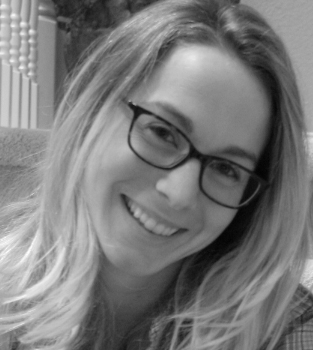
I consider an experience to be life altering when it does one of the following things: changes how I perceive the world around me, or changes how I grapple with complex questions and problems that have no predetermined right or wrong answer.
As an Anthropology major at UC Berkeley, I took a class with Dr. Laura Nader on controlling processes: how various components of our society, ranging from media to medicine, can control our actions, motives, and desires without our realization. This inspired my interest in curriculum and high stakes testing. Dr. Nader’s class helped me realize that neither a curriculum nor a test is neutral; they can determine what a student is exposed to and, consequently, values as something worth learning. This change in perception was my first step toward the realm of education.
My second step came with my two years of teaching experience: one year teaching English at a high school in Rennes, France, and the second year teaching as a part-time high school French teacher, as well as an after school third grade teacher in San Francisco. These two years were pivotal in a way that was markedly different from my undergraduate experience at Berkeley. As a teacher in international and national, public and private, elementary and secondary domains, I realized that there is no single pedagogical approach or reform that can be universally applied to struggling teachers or students. Instead of interpreting situations as being black or white, I learned to process them in shades of gray. This translated into coming up with practical educational solutions that were contingent on their surrounding contexts. My time as a teacher made me realize that the next step for me was to marry my newfound practical knowledge and small-scale direct impact with theoretical knowledge that could effectuate large-scale change.
This brought me to the IEAPA program at Stanford. Classes such as "Introduction to Comparative and International Education" and "Politics, Policy Making, and Schooling Around the World" helped to complicate my perception of current educational issues and phenomena. Both faculty and students pushed me to always think, act, and write in a thorough and responsible manner, whether I was constructing a curriculum, designing an interview protocol, or conducting a regression analysis of equalized spending policies in the United States. While the coursework and faculty were excellent, the zenith of the program was undoubtedly the MA paper. For my MA paper, I chose to do a qualitative case study by collecting and analyzing interviews and classroom observations to answer the following research question: how does an alternative elementary school enact its educational goals for its students? My case study required both problem solving in the field, as well as constant re-alignment with relevant educational literature and theory. The experience brought my course readings and classroom conversations to life, it changed the way I tackle the many stages of the research cycle and helped me do what I had set out to do at Stanford: connect theory with practice.
My Stanford graduate experience was life altering because it changed both my internal framework for processing problems, and my external approach to unraveling educational issues. The IEAPA program directly prepared me for the job I now have as a Research Manager at Empirical Education Inc. As a Research Manager, I coordinate all the interlinked moving parts of the research cycle, from design to literature review to data collection and analysis to the reporting of the findings. I do this while collaborating with involved educational practitioners in schools across the United States. One project that I’m currently managing employs qualitative and quantitative methods to evaluate the effectiveness of a Singapore math curriculum, which is being piloted in Las Vegas, Nevada. As the Research Manager of this large-scale study, I rely daily on both content and methods that were taught to me at Stanford. With this job, I am able to oscillate from theory to practice, research to policy. I continue to develop my research skills that I acquired at Stanford while remaining connected to schools and teachers (and therefore the prevalent educational issues at hand). Stanford solidified my previous research interests and practical training by building a bridge between the two. I now possess the skills and perspectives needed for connecting and balancing educational research, policy, and practice.